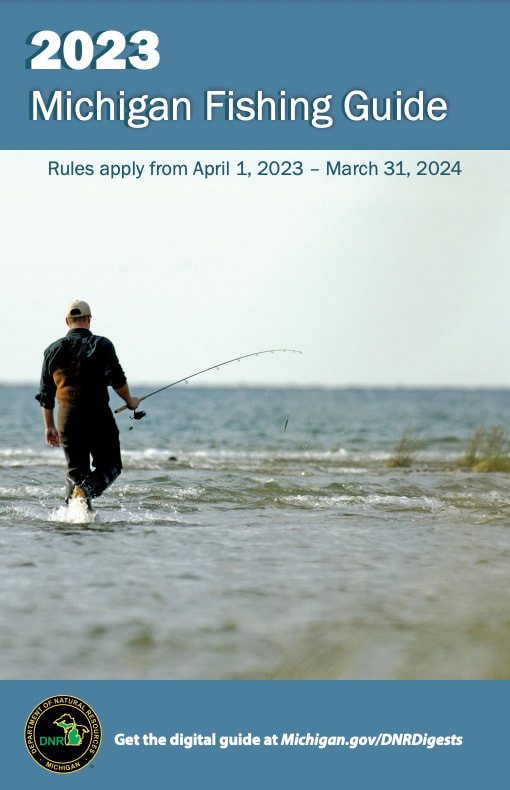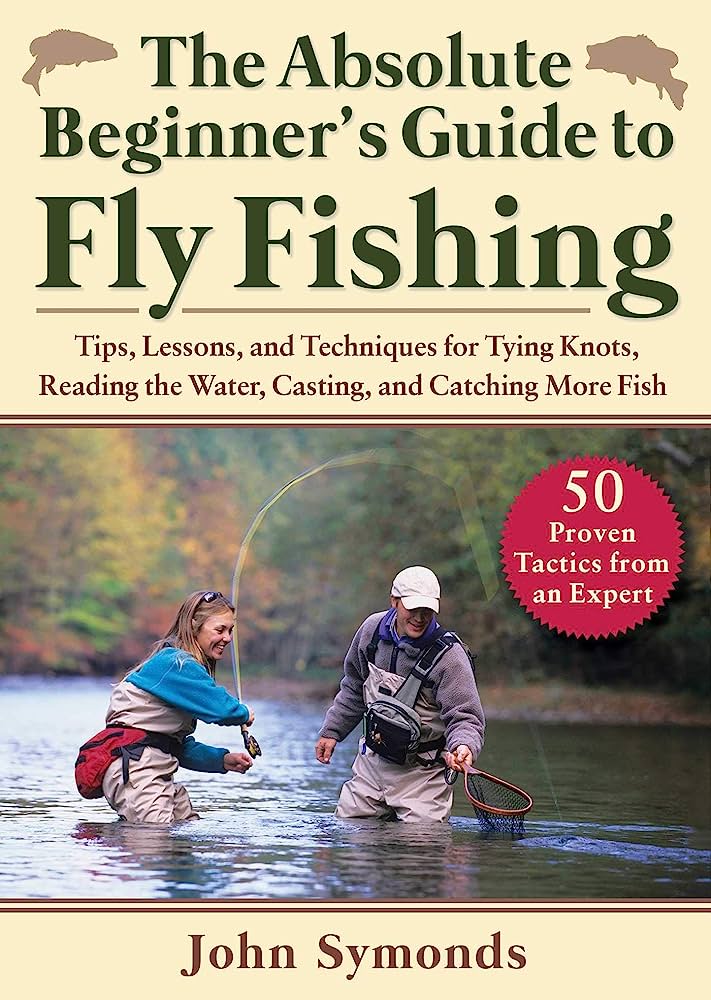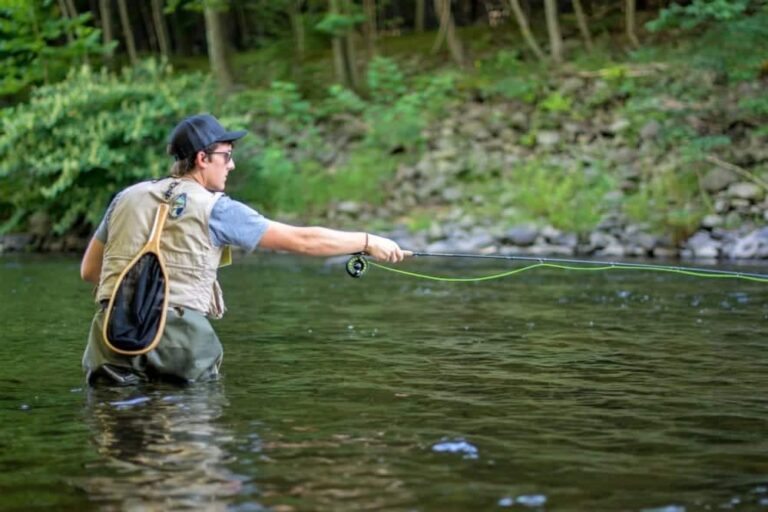Fly fishing and spinning are both effective methods, but fly fishing offers a more immersive and authentic experience. Fly fishing allows for precise targeting of specific fish species, while spinning is better suited for covering larger areas.
Additionally, fly fishing requires mastering specific casting techniques, adding an element of skill and challenge. Fly fishing also encourages a more intimate connection with nature, as anglers must carefully observe their surroundings and imitate natural insect behavior. Overall, while each method has its merits, fly fishing provides a more unique and traditional angling experience.
So, when deciding between fly fishing and spinning, consider the level of precision, skill, and connection with nature you desire.

Credit: www.sportfishingmag.com
Understanding The Different Fishing Techniques
Fly fishing and spinning are two widely popular fishing techniques, each with its own unique characteristics and advantages. If you’re new to the world of fishing or simply looking to explore different techniques, it’s essential to understand the differences between fly fishing and spinning.
In this section, we will delve into the historical background of these techniques and highlight their key differences.
Historical Background Of Fly Fishing And Spinning
- Fly fishing:
- Fly fishing dates back thousands of years and has deep roots in ancient civilizations such as egypt and macedonia.
- Early fly fishing techniques involved using handcrafted artificial flies made from materials such as feathers, fur, and silk.
- Fly fishing gained significant popularity in the 19th century when british angler g.e.m. Skues introduced nymph fishing techniques.
- Spinning:
- Spinning originated in europe during the late 19th century and quickly gained traction as a versatile fishing technique.
- The invention of the spinning reel, often referred to as the fixed-spool reel, revolutionized spinning and made it accessible to recreational anglers.
- Spinning gained prominence due to its simplicity, allowing anglers to cast lightweight lures over long distances with ease.
Key Differences Between Fly Fishing And Spinning
- Casting technique:
- Fly fishing:
- Fly casting involves using a specialized fly rod to cast a nearly weightless fly line and fly.
- Anglers use a back-and-forth casting motion, utilizing the line’s weight to propel the fly to the desired location.
- Spinning:
- Spinning involves casting a lure or bait using a spinning rod and reel combination.
- The angler releases the line by opening the bail on the spinning reel and casts the lure by rapidly pulling the rod tip back and then forward.
- Lures and baits:
- Fly fishing:
- Fly fishing primarily relies on using artificial flies, which imitate various insects, small fish, or other natural prey.
- The angler presents the fly to the fish, mimicking natural movement and behavior.
- Spinning:
- Spinning utilizes a wide range of lures, such as spoons, spinners, and soft plastics, to attract fish.
- Anglers can also use live or dead bait, such as worms or minnows, with spinning techniques.
- Targeted species:
- Fly fishing:
- Fly fishing is commonly associated with targeting trout and salmon, although it can be used to catch many other fish species.
- It is particularly effective in freshwater environments like rivers, streams, and lakes.
- Spinning:
- Spinning allows anglers to target a wide variety of fish species across both freshwater and saltwater environments.
- It is commonly used for species such as bass, pike, walleye, redfish, and offshore gamefish.
- Presentation and technique:
- Fly fishing:
- Fly fishing often requires precise presentation due to the delicate nature of the artificial flies.
- Anglers must learn various casting techniques, including the roll cast, reach cast, and mend, to achieve desirable drifts and presentations.
- Spinning:
- Spinning techniques focus on imparting lifelike action to the lures to entice strikes from fish.
- Anglers can use a variety of retrieval techniques, such as steady retrieves, jerking actions, or pauses, to mimic natural prey movements.
Understanding the differences between fly fishing and spinning is crucial in determining which technique best suits your fishing goals and preferences. Whether you’re drawn to the elegance of fly fishing or the versatility of spinning, both techniques offer rewarding experiences on the water.
So, grab your gear and embark on a fishing adventure that’s tailored to your style.
Pros And Cons Of Fly Fishing
The Art Of Fly Fishing: Precision And Skill
Fly fishing is much more than just a method of catching fish – it’s an art that requires precision and skill. By using a lightweight artificial fly, anglers can imitate the natural prey of fish, making it a highly effective and satisfying technique.
Here are some key points to consider:
- Fly fishing requires a delicate presentation and precise casting techniques. Anglers must develop the skill to softly land their fly on the water’s surface to avoid spooking the fish.
- The use of flies instead of lures makes it necessary to match the hatch, imitating the specific insects that fish are feeding on at a given time. This level of detail adds an exciting challenge to the activity.
- Anglers have the opportunity to tie their own flies, enabling them to create unique patterns and experiment with different materials. This adds a creative and artistic aspect to the sport.
Benefits Of Fly Fishing For Anglers
Fly fishing offers a range of benefits for anglers, which contribute to its enduring popularity. Let’s explore some of these advantages:
- Fly fishing is known for its therapeutic qualities, providing a peaceful and relaxing experience. The rhythmic casting and the time spent immersed in nature offer stress relief and a chance to recharge.
- Catching fish on a fly rod is a highly rewarding experience. The increased sensitivity and engagement with the fish on such equipment intensify the sense of achievement when successfully landing a fish.
- This technique allows anglers to access areas that may be difficult to reach with other fishing methods. The ability to wade in shallow waters or cast accurately beneath overhanging branches enhances the overall fishing experience.
Enjoying The Serenity Of Nature
One of the greatest appeals of fly fishing is its ability to connect anglers with the serenity of nature. Here’s why fly fishing enthusiasts appreciate this aspect:
- Fly fishing often takes place in pristine environments, such as rivers, streams, and mountain lakes. These natural settings offer a tranquil and peaceful atmosphere, where anglers can escape the noise and distractions of daily life.
- Spending time on the water provides an opportunity to observe and appreciate the beauty of wildlife and natural surroundings. Whether it’s the sight of a majestic bald eagle or the sound of rushing water, the experience is truly remarkable.
Challenging Yet Rewarding Experience
Fly fishing presents a level of challenge that may not be found in other fishing methods. While this can be daunting for beginners, the rewards make it all worthwhile. Consider the following:
- Mastering fly fishing requires patience and persistence. It involves learning various casting techniques, understanding aquatic ecosystems, and studying the behavior of different fish species. The journey of acquiring these skills is both challenging and fulfilling.
- The challenge of fooling fish with a fly adds an element of excitement and unpredictability to the experience. It creates a sense of anticipation and keeps anglers engaged and focused on developing their skills.
Versatility And Adaptability In Different Environments
Fly fishing is not restricted to specific fishing environments. It adapts readily to various conditions, making it a versatile choice for anglers. Here’s why:
- Fly fishing can be enjoyed in both freshwater and saltwater locations, opening up a wide range of fishing opportunities. From trout in mountain streams to tarpon in tropical flats, the possibilities are endless.
- Depending on the situation, fly anglers can use a variety of fly types and sizes, allowing them to imitate the insects or baitfish relevant to the fish they are targeting. This versatility makes it possible to target different species in different locations throughout the year.
Potential Drawbacks Of Fly Fishing
While fly fishing offers many advantages, it’s important to consider some potential drawbacks before diving into this angling method. Let’s explore these points:
- Fly fishing can be seen as an investment of both time and money. The purchase of fly rods, reels, lines, and flies can be more expensive than conventional spinning gear. Additionally, creating a collection of flies and other accessories requires ongoing investment.
- Fly fishing has a steep learning curve, especially for beginners. Mastering the art of casting and understanding the complexities of fly selection can take time and practice. Patience and dedication are key to progress in this rewarding pursuit.
- Compared to other fishing techniques, fly casting has limited distance and accuracy. The ability to cast long distances may be challenging, particularly in windy conditions. This means fly anglers often need to be relatively close to their target, requiring them to get closer to fish.
As you can see, fly fishing has its advantages and challenges. It requires skill, time, and investment, but offers unique connections with nature, a rewarding experience, and versatility in different fishing environments. Whether you are a seasoned angler or a beginner, exploring the world of fly fishing can open up a whole new world of angling possibilities.
Pros And Cons Of Spinning
Fly fishing and spinning are two popular methods used by anglers to catch fish. While both have their own merits, let’s take a closer look at the pros and cons of spinning techniques.
The Simplicity Of Spinning Techniques
Spinning techniques are known for their simplicity, making them a great option for beginners or anglers who prefer a straightforward approach to fishing. Here are some key points to consider:
- Minimal equipment: Spinning techniques require less specialized equipment compared to fly fishing, making it more accessible for those on a budget.
- Easy setup: Setting up a spinning rod and reel is relatively quick and straightforward, allowing anglers to spend more time on the water.
- User-friendly mechanics: Spinning reels have a fixed spool that simplifies casting and reeling in fish, making it easier to grasp the basic mechanics of fishing.
Advantages Of Spinning For Anglers
Spinning techniques offer several advantages that make it a popular choice among anglers. Let’s explore these advantages further:
Ease of use and quick learning curve:
- Spinning techniques are easier to learn compared to fly fishing, allowing anglers to start fishing more quickly.
- The basic casting technique of spinning involves a simple overhead or sidearm motion, making it easier for beginners to achieve good casting distance and accuracy.
Casting distance and accuracy:
- Spinning reels have a spinning spool that allows for longer and more accurate casts compared to fly fishing.
- The fixed spool of a spinning reel allows for greater control over casting distance, making it easier to reach fish that are farther away.
Versatility in different fishing conditions:
- Spinning techniques are effective in a variety of fishing conditions, including freshwater, saltwater, lakes, rivers, and even inshore or offshore fishing.
- Anglers can use spinning techniques to target a wide range of fish species, from small panfish to larger game fish.
Potential Limitations Of Spinning
While spinning techniques have their advantages, it’s important to consider the potential limitations as well. Here are a few things to keep in mind:
Lack of artistry and skill:
- Compared to fly fishing, spinning techniques may be seen as less artistic and require fewer technical skills.
- Spinning often relies more on the presentation of lures rather than the intricate fly patterns and delicate presentations of fly fishing.
Less immersive experience in nature:
- Fly fishing enthusiasts often enjoy the immersive experience of wading in a river or standing on a peaceful bank, while spin fishing typically involves casting from the shore or a boat.
- The physical connection between angler and water is perceived to be stronger in fly fishing.
Limited effectiveness in certain situations:
- Spinning techniques may not be as effective as fly fishing in situations where the fish are feeding on small insects or require a more delicate presentation.
- Some species, such as trout in highly pressurized waters, may be more wary of spinning lures.
Spinning techniques have their advantages with regards to simplicity, ease of use, casting distance, and versatility. However, it may lack the artistic appeal and skill level associated with fly fishing. Understanding the pros and cons of each method can help anglers make an informed decision based on their preferences and fishing conditions.
So, whether you’re a beginner or an experienced angler, spinning techniques can offer an exciting and rewarding fishing experience.
Expert Insights On Fly Fishing Vs. Spinning
Is fly fishing better than spinning – expert insights on fly fishing vs. Spinning
Fly fishing and spinning are two popular fishing techniques that offer unique experiences. Whether you prefer the elegance and technique of fly fishing or the pragmatism and versatility of spinning, there are expert opinions to consider. Let’s explore the insights from fishing experts on the merits of each technique.
Expert Opinion 1: The Elegance And Technique Of Fly Fishing
- Fly fishing is often seen as a more sophisticated and artistic approach to fishing.
- It requires casting a lightweight fly line with an artificial fly, mimicking the behavior of an insect.
- The angler must possess excellent control over the line and presentation to entice the fish to strike.
- Fly fishing is known for its gracefulness and the skill required to master its delicate motions.
- It offers a more challenging and exhilarating experience for those who appreciate finesse and precision.
Expert Opinion 2: The Pragmatism And Versatility Of Spinning
- Spinning, on the other hand, is considered a more practical and versatile fishing technique.
- It involves using a reel with a spinning lure or bait, making it easier to cast and retrieve.
- Spinning gear allows for covering a wider range of fishing scenarios, from freshwater to saltwater.
- It is suitable for beginners as it doesn’t require as much skill and technique as fly fishing.
- Spinning offers a straightforward and efficient approach to catching fish in various environments.
Expert Opinion 3: Finding The Best Technique For Different Scenarios
- The choice between fly fishing and spinning often depends on the fishing scenario and personal preferences.
- Fly fishing excels in situations where precision and delicacy are crucial, such as trout fishing in clear, slow-moving waters.
- Spinning is more effective in situations where accuracy and distance in casting are essential, like fishing in fast-flowing rivers or targeting larger predatory fish.
- Anglers should consider factors such as location, target species, weather conditions, and personal skill level to determine the best technique.
Expert Opinion 4: Balancing Skill And Practicality In Fishing Choices
- Ultimately, the choice between fly fishing and spinning comes down to balancing skill and practicality.
- Fly fishing offers a rewarding and immersive experience for those who enjoy the technical aspects of the sport.
- Spinning, on the other hand, provides a more accessible and versatile option without compromising on the enjoyment of fishing.
- It’s important to weigh the advantages and disadvantages of each technique to find the best fit for your fishing goals and style.
Both fly fishing and spinning offer unique experiences that appeal to different anglers. Whether you prefer the elegance and technique of fly fishing or the pragmatism and versatility of spinning, the choice ultimately depends on your personal preferences, fishing scenario, and desired level of challenge.
So, go out there and explore these exciting fishing techniques to enhance your angling skills and create memorable fishing moments. Happy fishing!
Choosing The Right Technique For You
Fly fishing and spinning are both popular fishing techniques that have their own advantages and appeal. However, deciding which technique is better for you ultimately depends on your personal preferences and fishing goals. Below are some key factors to consider when choosing the right technique:
Understanding Your Preferences And Fishing Goals
- Consider the type of fishing experience you prefer. Fly fishing offers a more immersive and challenging experience, requiring the angler to mimic the movements of insects on the water surface. Spinning, on the other hand, is a more straightforward and accessible technique that utilizes lures or live bait.
- Think about your desired level of involvement. Fly fishing requires the angler to be actively engaged throughout the process, from casting to retrieving the line. Spinning, on the other hand, allows for a more relaxed and laid-back fishing experience.
- Assess your skill level and willingness to learn. Fly fishing requires a certain level of technique and finesse, which may take time to master. Spinning, on the other hand, is relatively easier to learn and suitable for beginners.
- Consider the target species you want to catch. Some fish species are more receptive to specific techniques. Fly fishing is often preferred for targeting trout and salmon, while spinning is suitable for a wide range of freshwater and saltwater species.
- Think about the type of water you will be fishing in. Fly fishing is particularly well-suited for rivers, streams, and small bodies of water with abundant insect life. Spinning, on the other hand, can be effective in both still waters and moving currents.
Considerations For Beginners
- If you are new to fishing, spinning is a great technique to start with. It requires minimal equipment and is relatively easier to learn compared to fly fishing.
- Spinning allows beginners to cover a larger area and explore different depths, increasing the chances of catching fish.
- You can use a variety of lures with spinning, giving you a chance to experiment and find what works best for you.
- The casting technique in spinning is simpler compared to fly casting, making it more beginner-friendly.
Environmental Factors To Consider
- Take into account the prevailing weather conditions. Fly fishing can be more challenging in windy conditions as the line is more affected by the wind. In such instances, spinning may be a more practical option.
- Consider the clarity and depth of the water. Fly fishing is often preferred in clear and shallow waters where the movement of the fly can be more visible to fish. Spinning may be more effective in deeper or murky waters where fish rely on vibrations and scent to detect prey.
Practicality Vs. Personal Joy: Finding The Right Balance
- While it is important to consider the practicality of a fishing technique, do not forget the personal joy and satisfaction it brings you.
- If you find joy in the art of casting and the delicate presentation of a fly on the water, fly fishing may be the technique that fulfills your passion.
- Conversely, if you prefer a more straightforward and results-oriented approach, spinning can provide you with a higher chance of catching fish.
Remember, the best technique for you is the one that aligns with your preferences, fishing goals, and the conditions you will be fishing in. So, take the time to assess these factors and choose the technique that suits you best.
Happy fishing!
Conclusion
So, is fly fishing better than spinning? It’s a difficult question to answer definitively. Both methods have their advantages and appeal to different types of anglers. Fly fishing offers a more technical and artistic approach to fishing, allowing for delicate presentations and a closer connection to nature.
On the other hand, spinning is a more versatile and accessible method that can be used in a wider range of conditions. It’s important to consider your personal preferences, the type of fish you’re targeting, and the environment you’ll be fishing in.
Ultimately, the best method is the one that brings you the most enjoyment and success on the water. Whether you choose the peaceful grace of fly fishing or the flexibility of spinning, what matters most is getting out there and enjoying the sport of fishing.
So, embrace whichever method speaks to you and have a great time on the water!




